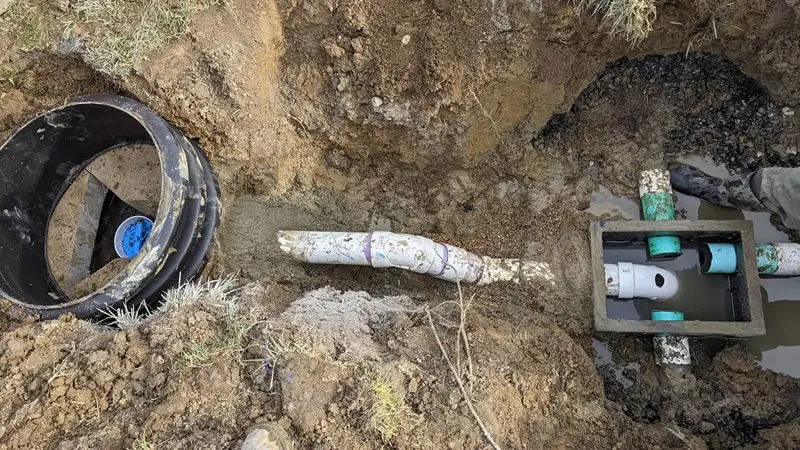FAQ
Emergency Call - 24/7
Frequently Asked Questions
Welcome to Main Stream company’s Frequently Asked Questions (FAQs) page. Here, we aim to provide answers to some of the most commonly asked questions about our services and processes.
If you have any additional questions or concerns, please do not hesitate to contact us via phone or email. We are here to provide you with the information and support you need to ensure your sewer and drain systems are functioning efficiently.
01.
Septic System Basics
A septic system is a self-contained wastewater treatment system that is installed on properties that are not connected to a municipal sewer system. It consists of a septic tank and a drain field, which work together to treat and dispose of household wastewater.
It is recommended that you have your septic system inspected by a licensed professional every 1-3 years. Regular inspections can help identify and address issues before they become more serious and costly.
Some signs of a septic system problem include slow draining sinks or toilets, foul odors, wet spots in the drain field area, and sewage backups in the house.

02.
Topic Section
Septic tank pumping is an essential maintenance task that should be performed regularly to ensure the proper functioning of your septic system. Here are some key points to keep in mind:
- The frequency of septic tank pumping depends on factors such as the size of the tank, the number of people in the household, and the amount of water used.
- On average, septic tanks should be pumped every 3-5 years.
- It is important to hire a licensed and experienced professional to perform the pumping and disposal of the waste.
- Neglecting to pump your septic tank can lead to clogs, backups, and system failure, which can be costly to repair.
Drain cleaning is a common service offered by septic and drain companies to address clogs and blockages in plumbing systems. Here are some important points to consider:
- Chemical drain cleaners can be harsh and damaging to pipes, and should be used sparingly.
- A plumber’s snake is a common tool used to clear clogs, but may not be effective for all types of blockages.
- Hydro jetting is a high-pressure water jetting technique that can effectively clear even the toughest blockages and clean out pipes.
- Regular drain cleaning can help prevent clogs and blockages from forming in the first place, and can extend the lifespan of your plumbing system.
Septic systems can sometimes require repairs due to age, damage, or neglect. Here are some key points to keep in mind:
- Signs that your septic system may require repair include foul odors, slow draining sinks or toilets, and wet spots in the drain field area.
- Some common septic system repairs include replacing damaged pipes, repairing or replacing the drain field, and replacing a faulty pump.
- It is important to hire a licensed and experienced professional to perform septic system repairs, as they require specialized knowledge and equipment.
- Neglecting to address septic system problems can lead to more serious and costly issues down the line. Regular inspections and maintenance can help prevent the need for repairs altogether.

03.
Drain Field Maintenance
A drain field, also known as a leach field, is an underground system of pipes and trenches that distribute treated wastewater from a septic tank into the surrounding soil.
Proper drain field maintenance can help extend the lifespan of your septic system. Some key tips include:
- Avoid planting trees or shrubs near the drain field, as roots can damage the pipes and disrupt the drainage process.
- Do not drive or park vehicles on the drain field, as this can compress the soil and damage the pipes.
- Avoid pouring harmful chemicals, such as cleaning products or motor oil, down drains or toilets, as these can harm the bacterial balance in the septic system and affect the drain field’s ability to treat wastewater.
- Regularly inspect and clean the septic tank, as a full tank can lead to clogs and backups in the drain field.
- Have a licensed professional inspect the drain field every 1-3 years to check for signs of damage or drainage issues.
Signs of a failing drain field include soggy or wet areas above the drain field, foul odors, and slow draining sinks or toilets. If you notice any of these signs, it is important to have your drain field inspected by a licensed professional as soon as possible.

Quick Service On Emergency Call - 24/7
Our 24/7 emergency service provides fast and reliable solutions for plumbing, septic, and drain issues. Our licensed professionals are equipped with the latest tools and technology to handle any emergency, day or night. Trust us to resolve your emergency quickly and effectively, ensuring your safety and peace of mind. Call the number.
